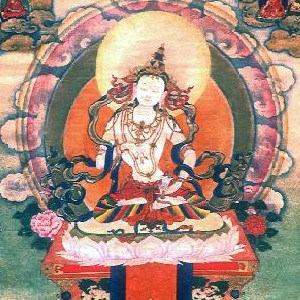Guiding one’s child

This response to a question on parenting is part of a talk given at The Buddhist Library in Singapore in April 2006.
In parenting, where is the line between guiding, shaping and being responsible for your child, and controlling them?
I think the line lies somewhere in our motivation. When we see the child as part of us, as an extension of us, that’s when I think the controlling mind jumps in. We have too much ego attachment to this child, so we want to make them what we’ve never been. We want to make them perfect. We aren’t perfect, so we say, “Let’s make this kid perfect.” They are young and moldable, so we say, “Let’s make them into what we were never able to become. Let’s give them everything we’ve never had, even if they don’t want it.”

Your role is like that of a steward’s; your role is to guide and shape the child. (Photo by Richa Yadav)
When our ego is too identified with the child, there’s not such a clear distinction between what is me and what is this other living being. A lot of controlling then comes in. But when you see that the child is a unique person that came into this life with karma and everything else from a previous life, that they have their own Buddha nature, then your role becomes more like that of a steward’s; your role is to guide and shape the child.
You’ve got to see what the tendencies and talents of the child are. Let’s say your child is good in music, but you want your child to be good in math, so you say, “Forget music. You’ve got to do math! You idiot, you didn’t do your arithmetic right. You can’t do anything right. I’m going to get you a tutor.” “Oh, what are the neighbors going to say? You did so poor in your test! Primary 1 and you got 50%. You’re a failure for your whole life!”
Oh, my goodness! This is just a little kid, and it’s just math! Maybe your kid is a musical genius. They learn some math, and even if they don’t get excellent marks in math, the world goes on.
You find out what your child is good in, what their own gifts are, and you nurture those. You might have a baby Mozart there, but if you try to make them into an Einstein, they’re never going to be one! And even if they aren’t Einstein or Mozart, who cares! They have some unique talents which, as a parent, you can nurture and bring out.
I think parenting is probably one of the hardest endeavors for people to be skillful at, the one they’re least trained for.
Venerable Thubten Chodron
Venerable Chodron emphasizes the practical application of Buddha’s teachings in our daily lives and is especially skilled at explaining them in ways easily understood and practiced by Westerners. She is well known for her warm, humorous, and lucid teachings. She was ordained as a Buddhist nun in 1977 by Kyabje Ling Rinpoche in Dharamsala, India, and in 1986 she received bhikshuni (full) ordination in Taiwan. Read her full bio.


